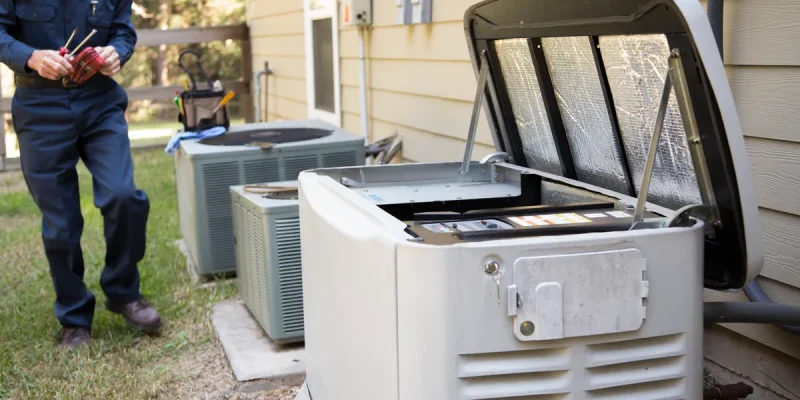Standby generators provide essential power during electrical outages and emergencies. These reliable systems require regular maintenance to function properly when needed. Many homeowners overlook basic care requirements until problems develop unexpectedly. Proper maintenance prevents costly repairs and ensures a dependable emergency power supply.
Neglected generators often fail during critical moments when power restoration becomes vital. Simple maintenance tasks keep systems ready for automatic activation during outages. Understanding care requirements helps protect substantial equipment investments over time. This blog covers essential practices needed to keep a standby home generator operating reliably.
Regular Oil Changes and Fluid Level Monitoring
Generator engines require fresh oil to lubricate moving parts and prevent damage. Oil changes should occur according to the manufacturer’s specifications and operating hours. Used oil becomes contaminated with debris that damages engine components permanently. Fresh oil maintains proper viscosity for optimal engine protection and performance.
Coolant levels need regular inspection to prevent engine overheating during operation periods. Low coolant causes engines to run hot and suffer permanent damage. Battery electrolyte levels require monitoring to ensure a reliable starting capability consistently. Fuel levels should remain adequate for extended operation during prolonged outages.
Fuel System Maintenance and Quality Management
Gasoline and diesel fuel degrade over time, causing engine problems and failures. Fuel stabilizers preserve gasoline quality during storage periods between power outages. Water contamination in fuel tanks creates corrosion and engine performance issues. Regular fuel testing identifies contamination problems before engine damage occurs.
Fuel lines and filters require inspection for leaks and blockages regularly. Clogged filters restrict fuel flow, causing engines to run poorly. Fuel pumps need periodic testing to ensure adequate pressure delivery consistently. Propane systems require tank inspections and connection leak testing for safety.
Air Filter Replacement and Cooling System Care
Dirty air filters restrict airflow, causing engines to run rich and poorly. Clean filters ensure a proper air-fuel mixture for efficient engine operation consistently. Filter replacement intervals depend on environmental conditions and operating frequency patterns. Dusty locations require more frequent filter changes than clean environments.
Cooling system components need regular cleaning to maintain proper heat dissipation effectively. Debris accumulation blocks airflow through cooling fins, reducing engine cooling capacity. Radiators and heat exchangers require periodic cleaning to prevent overheating problems. Cooling fan operation needs verification to ensure adequate airflow during operation.
Electrical System Inspection and Battery Maintenance
Battery terminals require cleaning to prevent corrosion that interferes with starting. Loose connections cause voltage drops, affecting reliable generator startup capability. Battery load testing identifies weak batteries before they fail during emergencies. The following electrical maintenance tasks ensure reliable generator operation when needed:
- Battery terminal cleaning and corrosion removal every six months minimum
- Load test batteries annually to verify adequate starting power capacity
- Transfer switch exercise cycles monthly to maintain proper mechanical operation
- Control panel indicator testing to ensure accurate system status monitoring
- Wiring inspection for damage, loose connections, and environmental deterioration
Professional Service and Seasonal Preparation
Annual professional inspections identify potential problems before they cause system failures. Certified technicians perform detailed testing that homeowners cannot complete safely. Professional service includes valve adjustments, timing checks, and performance testing. Expert maintenance extends generator life while ensuring reliable emergency operation.
Seasonal preparation helps generators perform optimally during peak demand periods. Pre-winter service ensures systems start reliably during storm season consistently. Summer preparation includes cooling system inspection and hot weather operation verification. Professional technicians understand specific requirements for different generator models and applications.
Proper maintenance practices ensure standby generators provide reliable emergency power when needed most. Regular oil changes, fuel system care, and electrical inspection prevent costly failures. Understanding how to keep a standby home generator operating properly protects equipment investments. Professional service combined with homeowner maintenance creates dependable backup power systems for emergency situations.











Comments